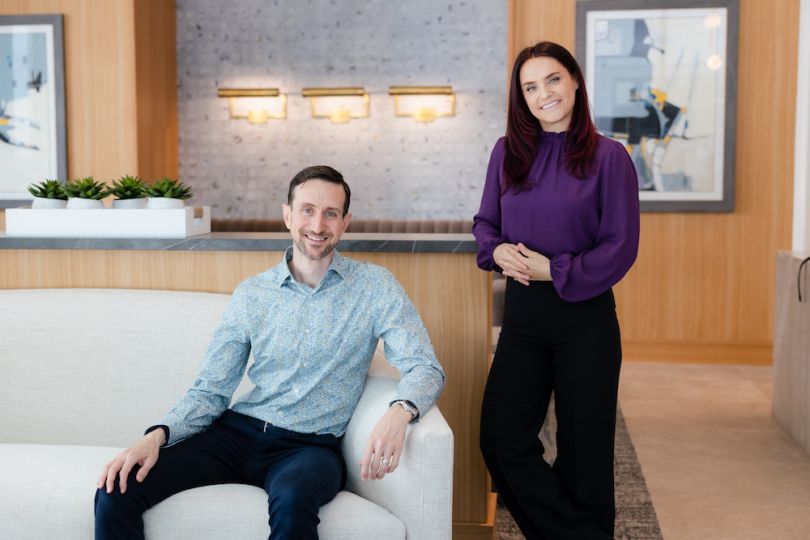
Online shopping is convenient, but not being able to try things on means sometimes you get ill-fitting clothing in the mail. While many brands make returns simple, it’s still a chore many either bemoan doing or just never get around to. For the latter, this often leads to clothes being donated or worse, ending up in landfills. For those that do return clothing, it ends up cutting into companies’ profits between the cost of shipping and loss of sale and sometimes still ends up in landfills.
One San Francisco-based company is using AI to solve these issues. Bold Metrics, which just raised $8 million in a Series A round led by Bessemer Venture Partners, provides apparel brands with AI body modeling and sizing technology. This gives customers an accurate view of how a piece of clothing will fit based on their measurements and preferences before ordering.
Customers simply enter a few pieces of information like height, weight, shoe size and age, and Bold Metrics’ AI technology creates a virtual avatar of that person’s body and compares it to garment measurements to provide sizing and fit feedback. The technology is also able to track orders and returns, helping it get smarter over time.
“Inspired by my family’s craft in tailoring and my background in data science, we sought to develop a method to capture body measurements accurately without compromising adoption rates,” CEO of Bold Metrics Daina Burnes said in a statement. “With Bold Metrics’ proprietary AI Body Modeling technology, we’ve achieved a scalable sizing solution that is easy for our clients and their customers to adopt and use, while simultaneously unlocking data-led insights to provide new tracks of retail intelligence throughout the organization.”
This solution is solving a big problem in the apparel and textiles industries. According to Shopify, customer preference-based returns — which include clothing not fitting properly — are responsible for 72 percent of clothing returns. This also has a huge environmental impact. Returns account for 15 million metric tons of CO2 annually and generate five billion pounds of landfill waste in the U.S. alone.

“A lot of people actually don’t know this, but when a consumer returns an apparel product, a lot of the times that ends up in a landfill and it’s not being repackaged and resold,” Burnes told Built In in an interview. “It’s often just more cost-effective for a company to throw away a garment rather than clean, repackage and resell it. By reducing the number of returns from consumers, [Bold Metrics] is able to also reduce the amount that goes to landfill.”
Companies using Bold Metrics — including Canada Goose, Tailored Brands (Men’s Wearhouse, Jos A. Bank), SuitShop, Blue Delta Jeans, UpWest and SIMMS — also get body metrics insights. This helps them create products that are better tailored to their customer’s actual body sizes.
In addition to its core capabilities, Body Metrics is also using its technology to enter and improve the metaverse. The company recently launched its Body Data NFT, which is able to store customers’ body metrics in the blockchain to be used for online sizing and custom clothing purchases. It’s also compatible with Ethereum wallets like Coinbase and MetaMask, providing a more streamlined experience for shoppers.
Bold Metrics plans to use its new funds to scale growth, hire new talent and invest in research and development to further meet its clients’ evolving needs. The company is currently hiring ten jobs across its customer success, engineering, operations and sales departments but Burnes told Built In she expects to hire more than that in the coming months.




